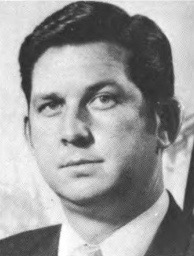A Quote by William J. Clinton
To build a twenty-first-century economy, America must revive a nineteenth-century habit--investing in the common, national economic resources that enable every person and every firm to create wealth and value.
Related Quotes
Given that the nineteenth century was the century of Socialism, of Liberalism, and of Democracy, it does not necessarily follow that the twentieth century must also be a century of Socialism, Liberalism and Democracy: political doctrines pass, but humanity remains, and it may rather be expected that this will be a century of authority ... a century of Fascism. For if the nineteenth century was a century of individualism it may be expected that this will be the century of collectivism and hence the century of the State.
I want to build a bridge to the 21st century in which we create a strong and growing economy to preserve the legacy of opportunity for the next generation by balancing our budget in a way that protects our values and ensuring that every family will be able to own and protect the value of their most important asset, their home.
As a journalist, I never isolated myself. I was a journalist at a daily newspaper and every day I went out on the street. Every day I had contact with people. I interviewed the most important writers of the twentieth century, and into the twenty-first century, from Simone de Beauvoir, Marguerite Duras, and Marguerite Yourcenar to Christa Wolf.
In the nineteenth century, which was a dark and inflationary age in typography, man compositors were encouraged to stuff extra space between sentences. Generations of twentieth-century typists were then taught to do the same, by hitting the spacebar twice after every period. Your typing as well as your typesetting will benefit from unlearning this quaint Victorian habit.
The chief moral obligation of the 21st Century is to build a green economy that is strong enough to lift people out of poverty. Those communities that were locked out of the last century's pollution-based economy must be locked into the new, clean and renewable economy. Our youth need green-collar jobs, not jails.

































